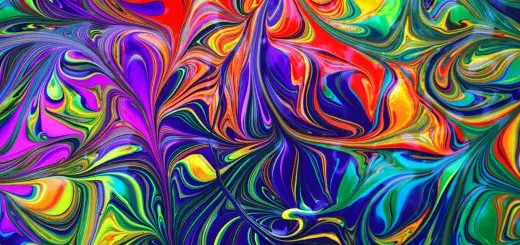Alchemy and the Mysteries of Color Transformation

Looking for more amazing products? Check out our online store and explore our collection here! Happy shopping!
Before diving in, please note: This post is for informational purposes only. If you’d like to know more about how we approach topics, feel free to check out our friendly Disclaimer Page.
Hey there, amazing readers! 
We’re committed to delivering quality posts, and your support (even just sticking around despite the ads) means everything to us. So, bear with us, and thanks for helping us keep the good vibes rolling. Now, on to the fun stuff!
TRANSLATE BUTTON AT THE END OF THE ARTICLE
A Quick Overview
Alchemy, the ancient practice of transmuting base metals into gold and achieving spiritual enlightenment, has long been shrouded in mystery and intrigue.
One of the fascinating aspects of alchemy is its connection to color transformation.
Colors hold significant symbolism in alchemical processes, representing various stages of transformation and spiritual growth.
This article delves into the history of alchemy, the principles of color transformation, the role of color in alchemical processes, and the practical applications of color in this mystical practice.
We will also explore the psychological implications of color transformation, the healing properties of colors in alchemy, and how modern interpretations are advancing the field of color transformation technology.
Introduction to Alchemy and Color Transformation
Alchemy is an ancient philosophical and proto-scientific tradition that aimed to transform base metals into noble metals like gold and silver.
However, alchemy was not just about material transformation; it also encompassed the spiritual and psychological transformation of the alchemist themselves.
Color played a crucial role in alchemical processes, symbolizing different stages of purification and enlightenment.
The use of colors in alchemy was not merely decorative but held deep symbolic meaning, reflecting the alchemist’s journey towards inner transformation.
The History of Alchemy and its Connection to Color
The practice of alchemy dates back to ancient civilizations such as Egypt, China, and Greece.
Alchemists believed that by mastering the transformation of metals, they could also achieve spiritual enlightenment and immortality.
Colors were used in alchemical texts and symbols to represent different elements, stages of transformation, and the union of opposites.
For example, red symbolized sulfur and the fiery nature of transformation, while white represented purification and the attainment of spiritual purity.
These colors were not chosen arbitrarily but were deeply rooted in the symbolic language of alchemy.
Understanding the Principles of Color Transformation
In alchemy, colors were used to symbolize the stages of transformation that the alchemist underwent on their path to enlightenment.
Each color represented a different aspect of the alchemical process, from the initial stage of nigredo (blackness) symbolized by black, to the final stage of rubedo (redness) symbolized by red.
These colors were not only symbolic but also served as guides for the alchemist to navigate the complexities of their inner journey.
Understanding the principles of color transformation was crucial for alchemists to progress towards the ultimate goal of spiritual transformation.
The Role of Color in Alchemical Processes
Colors played a multifaceted role in alchemical processes, influencing not only the physical materials used but also the mental and spiritual aspects of the practice.
Alchemists would often meditate on specific colors to induce a state of mind conducive to spiritual insights and revelations.
By incorporating colors into their rituals and experiments, alchemists believed they could harness the transformative power of color to accelerate their inner alchemical processes.
The role of color in alchemical processes was not limited to symbolism but extended to the practical application of color in laboratory work and meditation.
Alchemical Symbols and Their Significance in Color
Alchemical symbols were rich in color imagery, each representing a unique aspect of the alchemical process.
For example, the symbol of the ouroboros, a serpent eating its tail, was often depicted in the colors black and white, symbolizing the cyclical nature of transformation.
Other symbols such as the philosopher’s stone and the alchemical wedding were also associated with specific colors that held deep symbolic meaning for the alchemist.
Decoding these symbols and understanding their significance in color was essential for alchemists to progress in their spiritual journey.
Practical Applications of Color Transformation in Alchemy
Colors were not only symbolic in alchemy but also had practical applications in the laboratory.
Alchemists would use colored substances to create elixirs, tinctures, and potions that were believed to have healing properties and spiritual significance.
By combining different colors in specific ratios, alchemists could create compounds that were designed to enhance the transformative power of their experiments.
The practical applications of color transformation in alchemy extended beyond symbolism to the physical realm, where colors were used as tools for creating potent substances and unlocking the secrets of the universe.
Exploring the Mystical Aspects of Color in Alchemy
Colors were deeply intertwined with the mystical aspects of alchemy, representing not only physical elements but also spiritual principles and cosmic forces.
Alchemists believed that by meditating on specific colors, they could attune themselves to higher vibrations and access hidden knowledge.
The mystical aspects of color in alchemy went beyond mere symbolism to encompass a deeper understanding of the interconnectedness of all things in the universe.
By exploring the mystical aspects of color in alchemy, alchemists sought to unlock the secrets of creation and tap into the divine essence of existence.
The Psychological Implications of Color Transformation
Colors have a profound impact on the human psyche, influencing emotions, thoughts, and behaviors.
In alchemy, the psychological implications of color transformation were central to the alchemist’s inner journey of self-discovery and transformation.
Different colors were believed to correspond to specific psychological states, with red representing passion and vitality, blue symbolizing introspection and intuition, and yellow signifying intellect and clarity.
By working with colors and understanding their psychological implications, alchemists could delve deep into the subconscious mind and uncover hidden truths about themselves and the nature of reality.
Alchemy and Color Therapy: Healing Properties of Colors
Color therapy, also known as chromotherapy, is based on the principle that different colors have healing properties and can influence physical, emotional, and spiritual well-being.
In alchemy, colors were used not only for their symbolic significance but also for their therapeutic effects on the body and mind.
Alchemists believed that by immersing themselves in specific colors or ingesting colored substances, they could balance their energy centers, or chakras, and promote healing and transformation.
The healing properties of colors in alchemy were not only limited to physical ailments but also extended to mental and spiritual imbalances, offering a holistic approach to well-being.
Modern Interpretations of Alchemy and Color Transformation
In the modern era, alchemy has experienced a resurgence of interest, with practitioners exploring new ways to apply its principles in a contemporary context.
Advances in technology have allowed for the development of color transformation techniques that go beyond traditional alchemical practices.
From color therapy devices to digital art installations, modern interpretations of alchemy and color transformation have expanded the possibilities of integrating color into various aspects of our lives.
By blending ancient wisdom with cutting-edge technology, modern alchemists are pushing the boundaries of color transformation to new heights.
Famous Alchemists Known for their Work with Color
Throughout history, there have been many famous alchemists known for their pioneering work with color transformation.
One of the most well-known figures is Paracelsus, a Swiss physician and alchemist who revolutionized the field of medicine with his holistic approach to healing.
Paracelsus believed that colors had therapeutic properties and could be used to treat various ailments.
Another prominent figure is Isaac Newton, the renowned physicist and alchemist who made significant contributions to the understanding of light and color.
Newton’s experiments with prisms and color theory laid the foundation for modern optics and the study of color.
The Future of Alchemy: Advancements in Color Transformation Technology
As we move into the future, the field of alchemy continues to evolve, with advancements in color transformation technology paving the way for new discoveries and applications.
Researchers are exploring the use of nanotechnology to create color-changing materials that respond to external stimuli, opening up new possibilities for adaptive technologies and smart materials.
By harnessing the power of color transformation, scientists are unlocking the secrets of nature and developing innovative solutions for a wide range of industries, from healthcare to environmental conservation.
The future of alchemy holds endless possibilities for those who seek to explore the mysteries of color and its transformative potential.
Conclusion
In conclusion, alchemy and the mysteries of color transformation have captivated the minds of scholars, scientists, and seekers of spiritual enlightenment for centuries.
The use of colors in alchemical processes goes beyond mere symbolism to encompass a profound understanding of the interconnectedness of the universe and the transformative power of the human spirit.
By exploring the history of alchemy, understanding the principles of color transformation, and delving into the practical applications of color in this mystical practice, we gain insight into the profound impact that colors can have on our physical, mental, and spiritual well-being.
As we look towards the future of alchemy and advancements in color transformation technology, we are reminded of the endless possibilities that lie ahead in unlocking the secrets of the universe through the vibrant tapestry of color.

The Enlightenment Journey is a remarkable collection of writings authored by a distinguished group of experts in the fields of spirituality, new age, and esoteric knowledge.
This anthology features a diverse assembly of well-experienced authors who bring their profound insights and credible perspectives to the forefront.
Each contributor possesses a wealth of knowledge and wisdom, making them authorities in their respective domains.
Together, they offer readers a transformative journey into the realms of spiritual growth, self-discovery, and esoteric enlightenment.
The Enlightenment Journey is a testament to the collective expertise of these luminaries, providing readers with a rich tapestry of ideas and information to illuminate their spiritual path.
Our Diverse Expertise
While our primary focus is on spirituality and esotericism, we are equally passionate about exploring a wide range of other topics and niches 

To ensure we provide the most accurate and valuable insights, we collaborate with trusted experts in their respective domains 
Our blog originally focused on spirituality and metaphysics, but we’ve since expanded to cover a wide range of niches. Don’t worry—we continue to publish a lot of articles on spirituality! Frequently visit our blog to explore our diverse content and stay tuned for more insightful reads.
Hey there, amazing reader! 
Check out our store here and take a peek at some of our featured products below! Thanks for being awesome!














